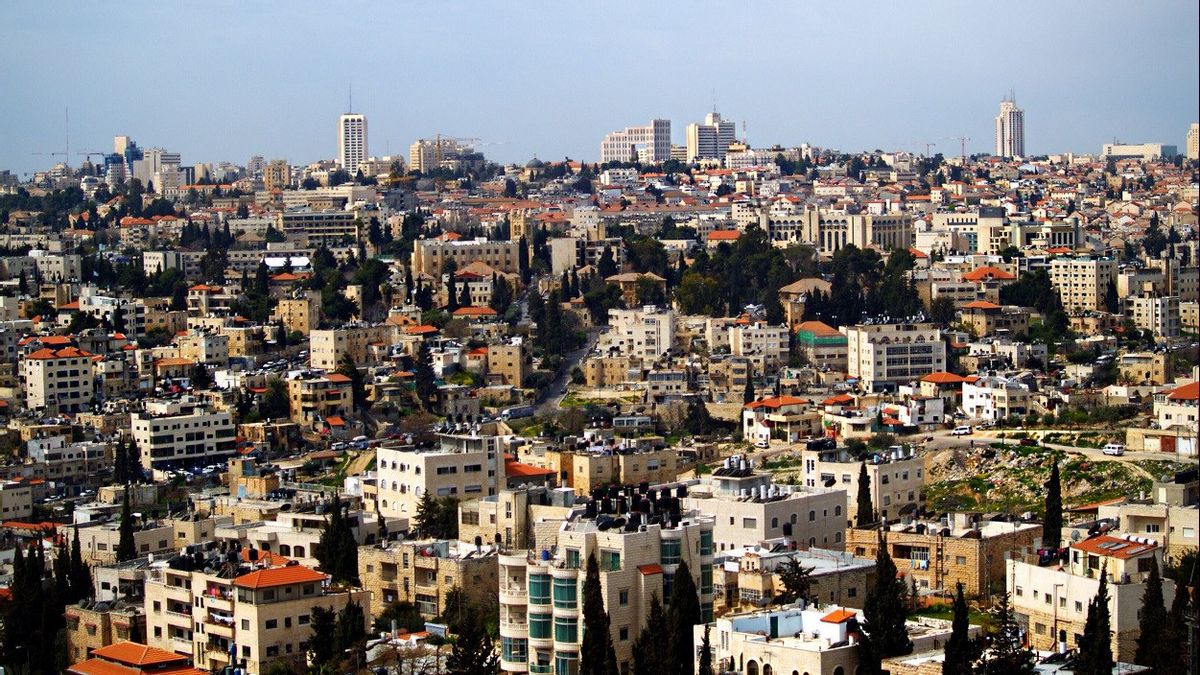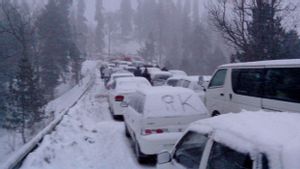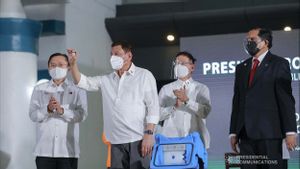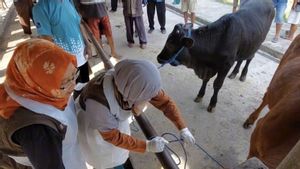JAKARTA - A Palestinian facing eviction by Israeli police from the East Jerusalem neighborhood of Sheikh Jarrah, threatened to blow up a gas cylinder in his home rather than allow his family to be forced out on Monday.
Dozens of police in riot gear surrounded the property early in the morning during hours of clashes. Roads were closed around the area, about a kilometer (one and a half miles) north of Jerusalem's Old City walls, where frequent clashes erupted last year between Palestinians and Jewish settlers.
The City of Jerusalem government took over the land to build a school, in an area that Israel captured and occupied in the 1967 war, along with the rest of East Jerusalem, and later annexed. An Israeli court ruled in favor of the eviction.
"I will burn the house and everything in it, I will not go from here, from here to the cemetery, because there is no life, no dignity," Mahmoud Salhiyeh said as he stood on the roof of the building surrounded by gas cylinders.
"I have been at war with them for 25 years, they sent me settlers offering to buy a house and I didn't agree," he continued.

An area of tree-lined sandstone houses, foreign consulates, and luxury hotels, Sheikh Jarrah has become the epitome of what Palestinians perceive as Israel's campaign to force them out of East Jerusalem.
Israel's Minister of Homeland Security Omer Bar-Lev said Monday that a court had ruled the case was one of illegal insubordination.
"You can't hold a stick at both ends demanding that city governments take action for the welfare of the Arab population and oppose building educational institutions for their welfare," Bar-Lev wrote on Twitter.
SEE ALSO:
As resident and activist Sheikh Jarrah monitored the situation from a nearby rooftop, the British Consulate in East Jerusalem, located opposite the house, tweeted that Consul General Diane Corner had joined other diplomats to "witness the ongoing evictions".
The consulate said such evictions in occupied territories were, in all but the most extraordinary circumstances, contrary to international humanitarian law. He urged the Israeli government to "stop such practices which only increase tensions on the ground".
The English, Chinese, Japanese, Arabic, and French versions are automatically generated by the AI. So there may still be inaccuracies in translating, please always see Indonesian as our main language. (system supported by DigitalSiber.id)


















